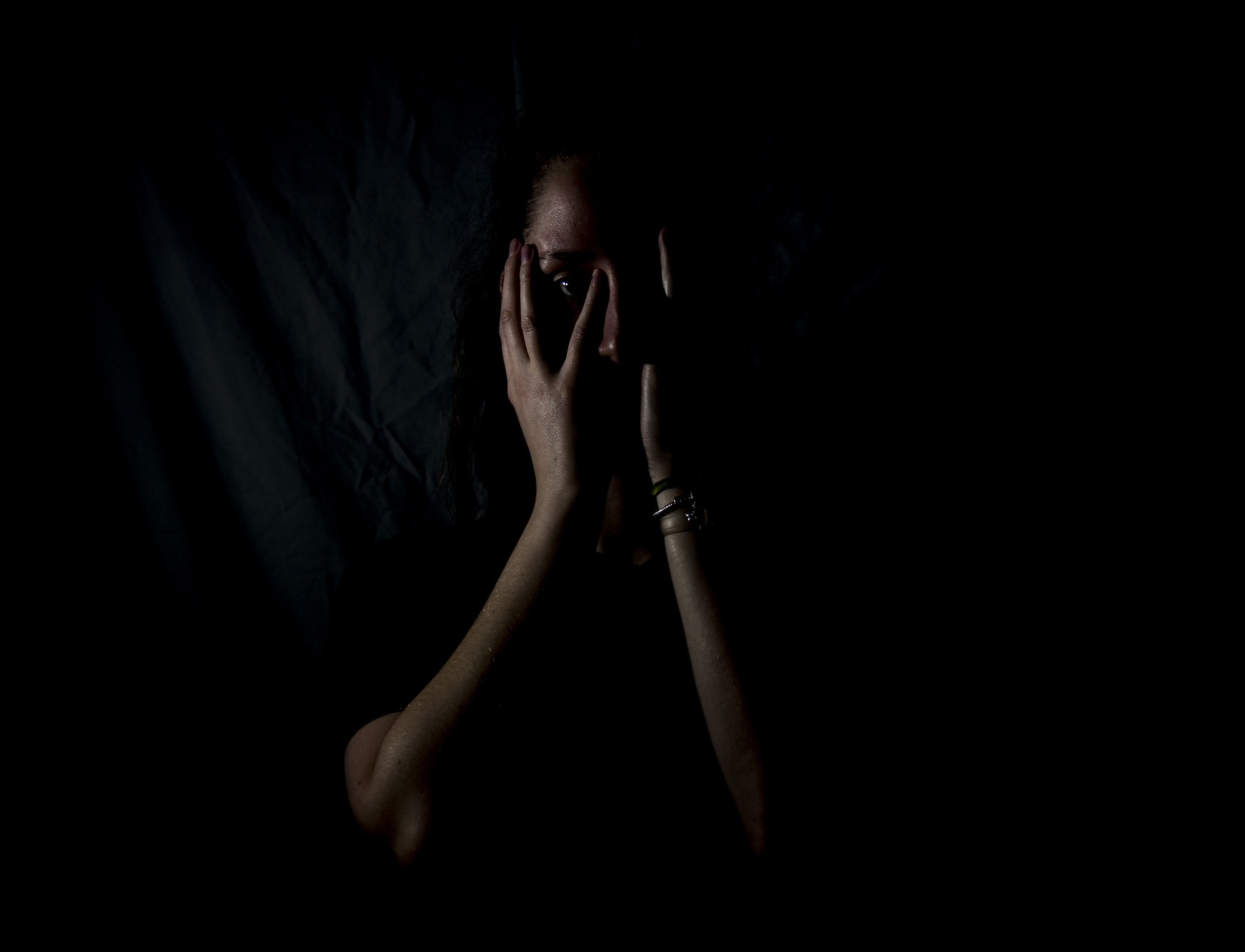Habitual Fear: A Personal Narrative
image by Melanie Wasser via Unsplash
This is a very special guest post by an alumna of my Unearthing Beauty Personal Narrative Class. This is one of the pieces she wrote during the class, and I asked if I could share it here because I absolutely love its understated drama as she explores an internal conflict with lots of sensory detail and stream-of-consciousness internal dialog.
Please be warned that this piece does mention some potentially sensitive content related to death, gore, and homicide, though that is not the focus.
The author has asked to remain anonymous, but feel free to comment on the post if you want to reach out to her, or email your thoughts to me and I’ll pass them on. I know she'd be touched to hear from you.
I awake from deep sleep to my husband's phone ringing. I lie in bed trying to figure out the details, only hearing his end of the call. He tells the caller he’s 30 minutes out. That’s not very long to get ready and be somewhere; this one is close to our house.
He snuggles up to me and groans. I feel the safety of his arms wrapped tightly around me and the warmth of his body pressed against mine. In my mind, I give thanks to God for this moment and beg him not to make it the last.
By the 2:00 am call and his groan, I know it’s a multiple body count. He takes a deep breath and sighs. “It’s a mess,” he says, “I don’t know when I’ll be home.” I remain quiet and confident like he needs me to be, giving him a half-smile and nod. He jumps out of bed and gets himself ready to leave.
I start my routine of clammy palms, nausea, churning stomach, and trembling. My mouth is watering, and I’m on the verge of throwing up from anxiety. This happens every time his phone rings in the middle of the night, calling him away. He’d be ashamed of me if he knew I reacted this way, so I keep it to myself. Somehow my reaction brings me comfort in its familiarity, and I convince myself this routine will ensure he comes home alive.
I’ve been through this over a hundred times in the 15 years I’ve been married to a homicide detective. Since the murder of George Floyd last May, Minneapolis has become a war zone. Violent crime rates are soaring. Entire streets are still lined with burned-down houses and buildings from the rioters. Businesses that weren’t burned to the ground still have their windows boarded up. Police are being shot at and set up for violence more than ever. In theory, officers secure crime scenes in hopes that no one gets injured working the scene. The reality, especially lately, is that crime scenes are dangerous because police become easy targets.
He takes a five-minute shower and is back in the bedroom getting dressed. I can smell the mint body wash he only uses when he has to wake up quickly. I admire how fit he’s stayed all these years and wonder how I got such a handsome husband. Keeping my private panic routine on schedule, I begin my casual and light questioning. Hey, it’s kinda an inconvenient time, can you call and tell them to send someone else? He says no. Can you quit? Yes, but I’m not going to. Can we move to a small town in a southern state where nothing happens? He says we could, but you know how people from the south are. It’s a long-standing inside joke between us, and we laugh.
I finish my routine by asking, what if this is the time you get killed? He says, then I’m dead, and you will be fine. When it comes to bravery we are not equally matched, but he doesn’t seem to know this.
I tell him I’ll pray for his safety, and he shakes his head at my ignorance of the situation. My husband isn’t a believer in God. He works with evil and sees things most people (including myself) couldn’t imagine truly happening. He tells me that positive thinking and the God of your choice don’t seem to ensure an upper hand in this world. I don’t pressure him to believe, and he doesn’t pressure me not to. It’s pure, authentic respect.
I lie in bed with our two dogs and listen to his car drive away. This is the part of my routine where I thank God for my beautiful dogs that keep me company and protect me. Then I desperately beg God to keep my husband safe. Next up, I terrorize myself with racing thoughts. I think of the goriest movie I’ve seen and try to imagine what he might see when he arrives on the scene—pools of blood, guts, and brains splattered on the walls and ceiling. Will the bodies be newly deceased, or have they been there for days, weeks, or months before someone found them? Will the victims be all male or some female? Will there be deceased kids or babies? Oh God, I hope there won’t be murdered animals there. It could be a family. Maybe it’s one of those murder-suicide things that have become more common. I imagine my sweet husband walking through and over bodies, trying to piece together what happened and who’s responsible.
My mind shifts focus to that unusual car parked across the street from our house this week. I start to obsessively think the murderer was probably in that car watching our house. Did they see the wheelchair access ramp in our garage? We purposely put the ramp in the garage so people couldn’t see it and know a vulnerable person lives here. An easy target. What if the murderer knows a woman who uses a wheelchair lives here and they come to our house? I’m going fast down my self-inflicted terrorizing spiral. I tell myself that Riggs and Axel, our two retired police dogs, are trained killers, so they will handle it if the murderer comes here. But what if there’s more than one murderer? Will this be the job my husband gets killed on? How will I survive in this world without his strength I rely on so much?
I exhaust myself and fall asleep.
In the morning, I wake up, and he’s dreaming next to me. I take a deep breath and thank God for protecting him once again. I feel my mind and body relax into momentary peace and comfort. I mentally affirm that God doesn’t give me a spirit of fear and then feel amused at how fearful I was. In my walk with God, I often find myself trying to untangle the mix of amusement and frustration in the contradictions between my faith and my reality.
I look my husband over while he sleeps. I don’t see any signs of injury. When we met 20 years ago, he was a police officer. He’d often come home with minor bruises and cuts from what he called “going hands on” while on the job. Back then, I was so naïve. I didn’t think people actually tried to attack police officers. Now I know they do and it’s rare if they don’t. How can he look so peaceful after what he’s been through? I probably look like a wreck, and everything I went through was all in my mind. Will I ever get better at handling this?
I want to wake him up and ask him what happened, but I don’t. I let him sleep, and I quietly get up to start my day.
If you enjoyed this piece, please leave a comment for the author below.
If you would like to gain confidence and skill to do some personal writing of your own, I encourage you to check out my Unearthing Beauty class here. The next cohort launches January 11, or you can get on the waitlist for a future cohort.


